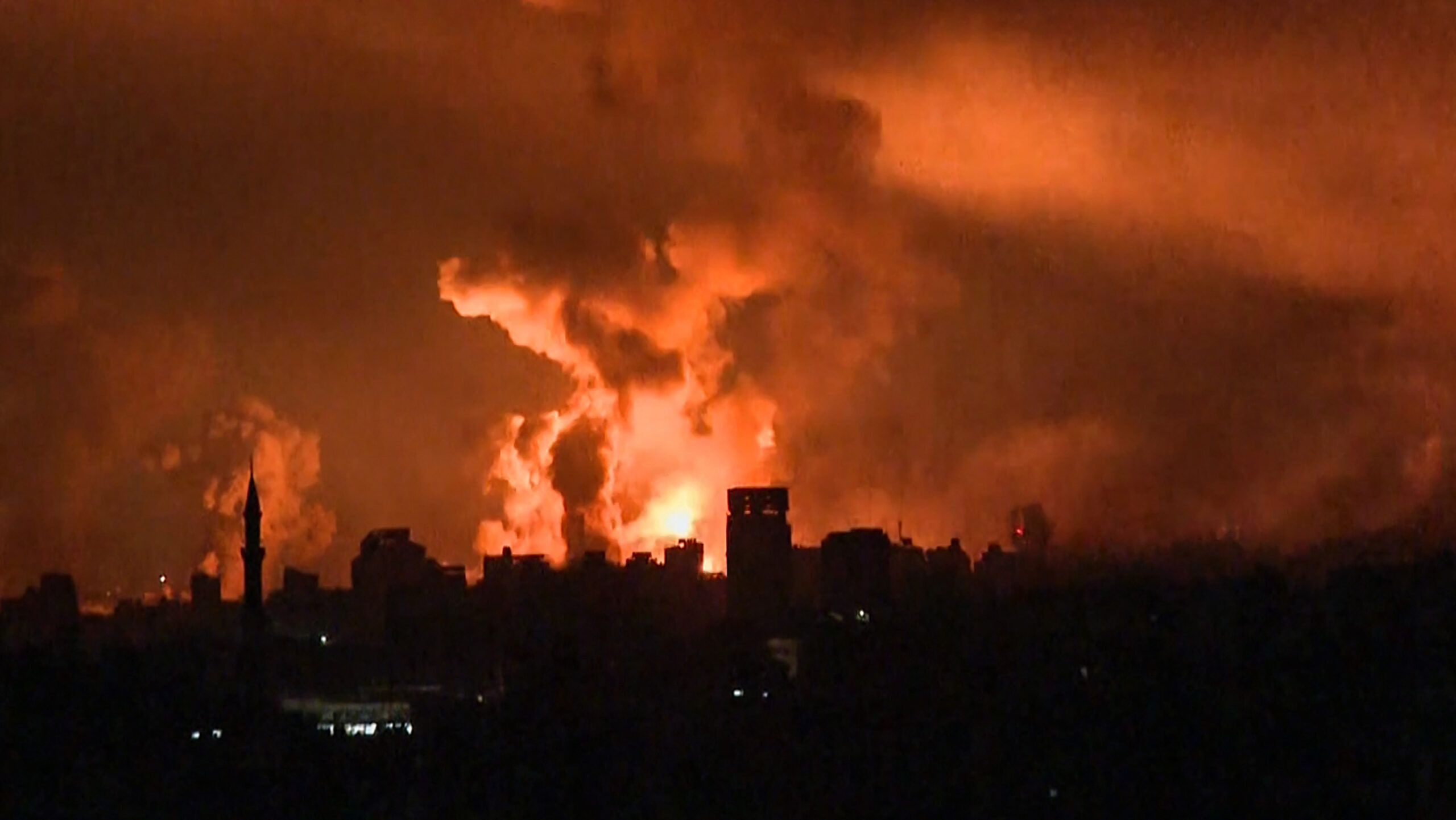
JERUSALEM — With the world on tenterhooks wondering whether Israel has decided to follow through with a full-scale invasion of Gaza, an Israeli Defense Forces spokesman said late today that the military is “expanding” ground operations. The Foreign Minister of Jordan, Ayman Safadi, directly accused Israel of launching a ground war on Gaza.
But it’s unclear if a full ground invasion has begun, or if the spokesman was instead signaling that the ramping up of smaller “raids” into Gaza will intensify.
Undoubtedly, this evening local time has brought intensified efforts. A Hamas spokesman reportedly claimed an Israeli ground operation was underway, while the IDF warned international media that it could not guarantee reporter safety in Gaza. Earlier today saw a particularly intense round of airstrikes, which, combined with the IDF comment, could presage an increase in military activity to come.
And yet, indications right now are that Israel will continue to be focused on more limited ground operations as had been seen in the last week, even if it’s unclear how long that will last. The rhetoric still indicates a full invasion of Gaza is coming: Israel Defense Minister Yoav Gallant gave a speech on Thursday evening saying that Israel was “creating the necessary conditions to continue this campaign,” and said a ground operation would come eventually.
Despite Israel bringing in over 300,000 reservists and massing forces along the border with Gaza, Jerusalem has relied on the use of air strikes and raids into Gaza as its response to the Oct. 7 Hamas assault that left 1,400 Israelis dead. The Washington Post reported today that the White House is pressuring Prime Minister Benjamin Netanyahu not to go in full force into Gaza and instead rely on a more “surgical” campaign.
RELATED: Amid US strikes in Syria, examining Iran, its proxies and the question of control

The state of play in military space
The military space sector is evolving fast. Get the latest from Space Force and industry officials on what’s next for acquisition, policy and training in a new Breaking Defense eBook.
So far, Israel seems to have agreed — although how “surgical” the campaign has been to this point is up for debate, given the large reported numbers of Palestinian civilian casualties. Thousands of airstrikes have been launched by Israel since the start of the war, with over a thousand just in this last week, according to IDF numbers.
In general the IDF has said that most of its attacks strike “terror infrastructure” as well as anti-tank missile launch sites, and also target Hamas commanders. The IDF has released details about some of the purported commanders and sites struck. These include naval commando sites and surface-to-air missile threats.
The defining feature of the last week was the announcement of ground operations, described as “raids” locally.
The first took place on Wednesday night and into the first hours of Thursday as units of the Givati brigade led a column of vehicles and tanks into the northern part of Gaza. They were joined with units from the Golani brigade, which was badly mauled during the Oct. 7 assault, with dozens of casualties hitting two battalions along the border. The IDF also acknowledged this week a commando raid by Shayetet 13, an elite unit.
Whether the “expansion” of operations set up by the IDF will look more like the battalion’s effort or the lower-tier strike operations, like so much about this conflict, remains to be seen. Still, it continues to feel just a matter of “if” and not “when” these raids will expand into a full-blown assault.
Gallant on Thursday put it in stark terms, saying, “I must say – we have no other choice. We will win because no other option exists. It’s either us, or Hamas.”
Read more coverage of the Israel-Hamas conflict:
- Amid US strikes in Syria, examining Iran, its proxies and the question of control
- In Beirut, anger in the street amid fears of escalation with Israel
- At Israel’s northern border, growing concerns about Hezbollah as week 3 of war looms
- On Israel’s front line, a grim silence and a military build-up
- How drone warfare in Israel could dramatically change if Hezbollah joins the fight: Analysts
- The Israeli Gaza campaign: High expectations, big risks and bleak outcomes
- Ukraine, Israel, submarines: What’s in Biden’s $105B supplemental request
- Hamas attack might freeze Saudi-Israeli normalization, but won’t likely kill it: Analysts
Continuing Fire
Israel’s IDF spokesperson today continued to call on Gazans to head south to avoid the impending ground assault. In addition he presented details claiming Hamas is using Gaza’s large hospital as a command center. Hamas has been accused of using the hospital for operations in the past, using tunnels and rooms underneath it that were expanded from a basement of the hospital. The use of a site like this by Hamas would further complicate the ground operation. (A Hamas official denied the allegation.)
One issue that could be playing into Israel’s decision to hold off on a broader assault into Gaza is fear that it will trigger a large-scale response from Hezbollah in Lebanon, plunging Jerusalem into a conflict on two borders.
After Oct. 7, Hezbollah began firing anti-tank rounds at Israeli communities, resulting in Israel’s evacuation of 40 communities and a city in the north. Israel has now deployed a large number of forces including tanks, artillery and APCs in preparation for escalation on its northern border.
The challenge in Gaza has been compared to the challenge of the American and coalition military’s Mosul campaign against ISIS, which took nine months. The overall picture presents Hamas as possessing a large and deeply constructed network of sites in Gaza, including an array of weapons from surface-to-air missiles to anti-tank weapons. It also presents the group, which has run Gaza since 2007, has having put together a large number of battalions, replete with commandos.
Meanwhile, in Israel the military and its citizens are contending with continued rocket barrages from Gaza. Interceptions high above central Israel could be seen from as far away as Jerusalem. However, more rockets are also getting through the defense array, impacting a home in Tel Aviv on Friday, and houses in other communities during the week.